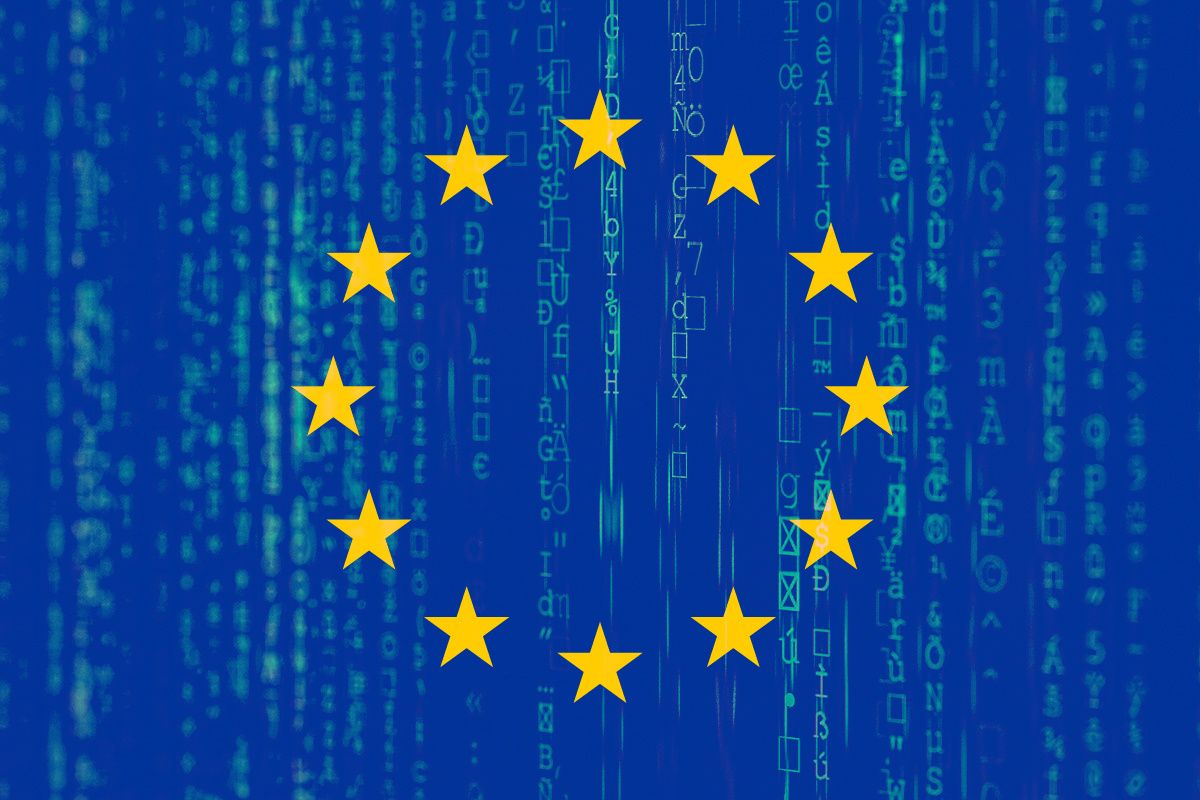October 29, 2019
It used to be that a country's sovereignty – its ability to do what it wants at home and abroad – depended mostly on military or economic clout. But in the digital age, when the ability to make sense of massive amounts of data will increasingly determine economic and military might, that's changing.
For the EU in particular, that's a problem: The world's largest economic bloc doesn't have anything comparable to Silicon Valley, whose massive digital companies lord over the data of billions of people and are poised to lead the next wave of digital innovation. Meanwhile, its companies in the US and East Asia make much of the physical hardware, like semiconductors, that powers the digital economy. Long-term, there's a risk that Europe could be cut off from key technologies in a crisis or end up overly dependent on tech companies in countries that might not always share Brussels' values on privacy and human rights.
Ursula von der Leyen, the incoming president of the European Commission, wants that to change. She's making a big push for "technological sovereignty" during her upcoming 5-year term. How?
First, by saying "no" to foreign tech giants that want access to Europe's lucrative market of 400-million consumers without respecting privacy rights. Brussels has had some success here: its strict data protection laws have already forced some of the world's biggest websites to conform their data practices to EU laws.
But being a regulatory superpower isn't enough. Europe also needs to ensure that its companies can compete in the digital age. Consider Europe's vitally important car industry, where the increasingly complex software that makes vehicles run will soon be more valuable than the rest of the car's parts combined. If one of Europe's most vital industries ends up beholden to foreign tech companies, its technological sovereignty will be in question.
Still, shoring up tech sovereignty won't be easy. The US and China aren't going to look kindly on attempts to rein in Silicon Valley. The US has already threatened tariffs in response to France's move to slap a tax on big digital firms, arguing that Paris unfairly singled out US tech companies. Uncle Sam isn't going to take other aggressive regulation from Brussels lying down. And trying to shut out Chinese 5G suppliers in order to give European manufacturers a leg up might stoke anger in Beijing.
What's more, the EU is actually 28 (ok, soon 27) countries who themselves don't all agree on questions about privacy regulation or how best to foster European technology champions. When Brussels comes asking them to change their views, they may refuse, citing their own...sovereignty.
More For You
Americans are moving less — and renting more. Cooling migration and rising vacancy rates, especially across the Sunbelt, have flattened rent growth and given renters new leverage. For many lower-income households, that relief is beginning to show up in discretionary spending. Explore what's changing in US housing by subscribing to Bank of America Institute.
Most Popular
Walmart sponsored posts
Walmart’s commitment to US-made products
What's Good Wednesdays
What’s Good Wednesdays™, February 4, 2026
World Central Kitchen staff hand out free soup in a neighbourhood that experiences electricity and heating outages following recent Russian attacks on Ukraine’s civilian infrastructure during subzero temperatures in Kyiv, Ukraine February 3, 2026.
REUTERS/Thomas Peter
1,170: The number of high-rise buildings in Kyiv that were left without heating following a barrage of Russian attacks last night on Ukraine’s capital and its energy facilities, per Kyiv Mayor Vitali Klitschko.
Protesters gather during a candlelight vigil, and interfaith prayer at Fort Lauderdale-Hollywood International Airport as airport workers and faith leaders rally calling on the federal government to extend Temporary Protected Status for Haiti on Jan. 28, 2026.
Diaz/Miami Herald via ZUMA Press Wire
Over the past five years, Haiti has endured extreme political turmoil, escalating violence, and one of the world’s worst humanitarian crises.
Microsoft unveiled a new set of commitments guiding its community‑first approach to AI infrastructure development. The strategy focuses on energy affordability, water efficiency, job creation, local investment, and AI‑driven skilling. As demand for digital infrastructure accelerates, the company is pushing a new model for responsible datacenter growth — one built on sustainability, economic mobility, and long‑term partnership with the communities that host it. The move signals how AI infrastructure is reshaping local economies and what people expect from the tech shaping their future. Read the full blog here.
© 2025 GZERO Media. All Rights Reserved | A Eurasia Group media company.
